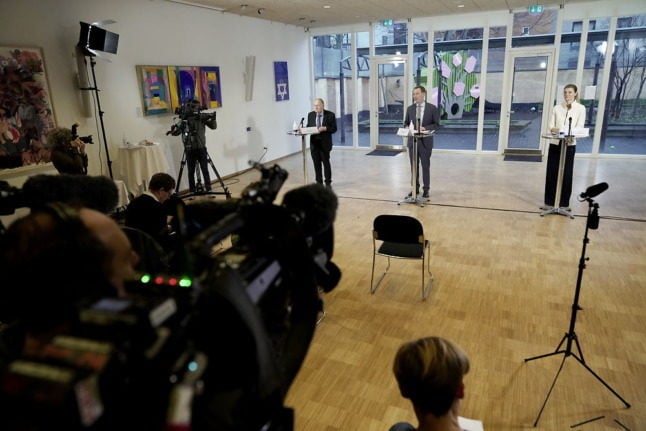On Monday, the government, along with left wing parties and the Christian Democrats, announced that spending from the 2022 budget would be set aside for a “plan of action” (handlingsplan in Danish) aimed at tackling racism.
The plan of action will “fight racism broadly in society, and its initiatives will stretch from the labour market and education to culture and hate crimes,” a Justice Ministry press statement read.
“But first and foremost, the extent and character of racism must be established,” it added.
Money set aside to fight hate crime in the 2022 budget will be partially spent on the action plan. The budget includes 8.2 billion kroner in 2022 and 8.1 billion kroner annually from 2023-25 for prevention of hate crimes.
READ ALSO: ANALYSIS: How could Denmark’s 2022 budget affect foreign residents?
The government and other signatory parties to the budget want to “make a plan of action that fights racism in all its ugly manifestations,” Justice Minister Nick Hækkerup said in the statement.
“It’s not befitting of Denmark that we have people in this country who experience hate crimes and being turned away from nightlife, jobs and housing solely because of their ethnic heritage. Nobody should be subjected to racism and discrimination. A plan of action against racism will contribute to a more safe and secure society for everyone in Denmark,” Social Liberal (Radikale Venstre) spokesperson Samira Nawa said in the statement.
The racism action plan will begin with a report on the known extent and character of racism in Denmark with further political discussion to take place in the second half of this year, according to the press statement.
The government on Tuesday announced a separate action plan against antisemitism.
The antisemitism action plan was formed in dialogue with community organisation the Jewish Community in Denmark (Det Jødiske Samfund), which provided the setting for a briefing at which the plan was presented by officials on Tuesday.
Included in the plan are 15 initiatives aimed at broadly tackling antisemitism in Denmark.
These include mandatory teaching about the Holocaust at schools, lessons on Danish-Jewish history and police training to prevent radicalisation. It will also promote interfaith dialogue between young people.
More targeted research into antisemitism will also be funded, including on areas of society in which antisemitism is prevalent.
In a statement, the government said that a directive to put together an antisemitism plan was issued in response to incidents of vandalism at Jewish graveyards in several locations in Denmark.
The aim of the plan is to “prevent antisemitism putting down roots in Denmark,” the Justice Ministry statement said.
“Antisemitism has sadly become a bigger problem in Denmark in recent years. We know from European studies that some Danish Jews avoid wearing items that can identify them as Jews and that some are harassed at school or work because they are Jewish,” Hækkerup said in the statement.
“We can and will not accept that,” he added.
The chairman of the Jewish Community in Denmark Henri Goldstein praised the plan at Tuesday’s briefing.
“I think to the highest possible degree that this plan is good. It’s thorough. But we will have to wait for 5 to 10 years to see whether it has had the effect it needs to,” Goldstein said according to broadcaster DR’s report.
The antisemitism action plan can be read in full (in Danish) on the ministry’s website.



 Please whitelist us to continue reading.
Please whitelist us to continue reading.
Member comments